BDS
Everything you need to know about BDS
Part of: Hey Alma’s Guide to the Israeli-Palestinian ConflictIn the past decade and a half, a movement called BDS has become more and more popular — if you’ve been on a college campus or certain corners of the internet, you’ve probably heard of it. Let’s break down what this movement actually stands for, as well as what its supporters and critics think.
What is BDS?
BDS stands for Boycott, Divestment, and Sanctions. According to the BDS movement’s official website, “BDS is a Palestinian-led movement for freedom, justice and equality. BDS upholds the simple principle that Palestinians are entitled to the same rights as the rest of humanity.” The loosely organized international movement promotes boycotts of, divestment from, and sanctions against Israel.
The movement is controversial, with many opponents saying it is anti-Semitic and aimed toward ending Israel’s existence as a Jewish state.
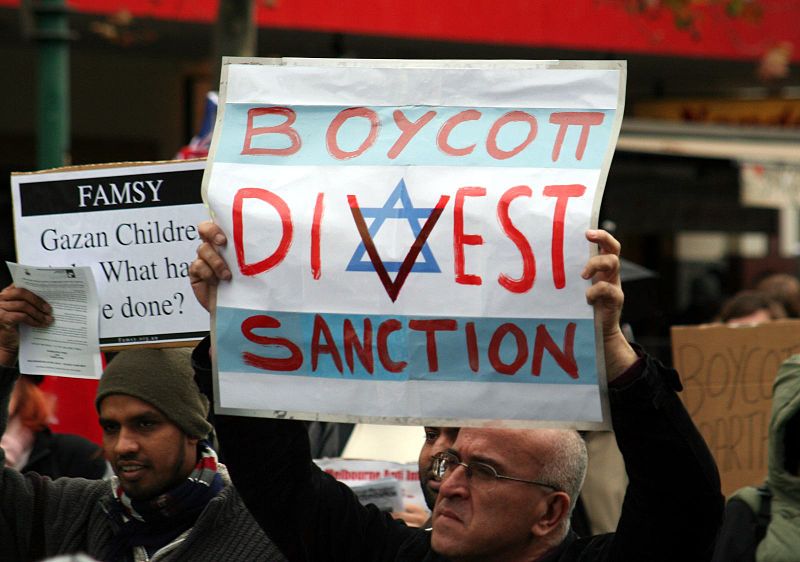
But what do boycotts, divestments, and sanctions actually look like?
Some of the more high-profile boycott efforts have included pressuring musicians not to perform in Israel, encouraging academics to refuse to work with Israeli universities, protesting against stores selling Israeli goods, and disrupting performances by Israeli theater and dance troupes.
The movement’s divestment activism involves pushing all sorts of organizations — from universities to churches to banks — to divest (withdraw their investment money) from Israeli companies or from foreign corporations that work with the Israeli military.
And the sanctions prong involves pressuring governments to isolate Israel, cut trade, or ban products specifically from Israel’s West Bank settlements.
What are the goals of the movement?
The goals of BDS, in the movement’s own words, are three-fold:
- “Ending Israel’s occupation and colonization of all Arab lands and dismantling the West Bank barrier wall.”
- “Recognizing the fundamental rights of the Arab-Palestinian citizens of Israel to full equality.”
- “Respecting, protecting, and promoting the rights of Palestinian refugees to return to their homes and properties as stipulated in UN resolution 194.”
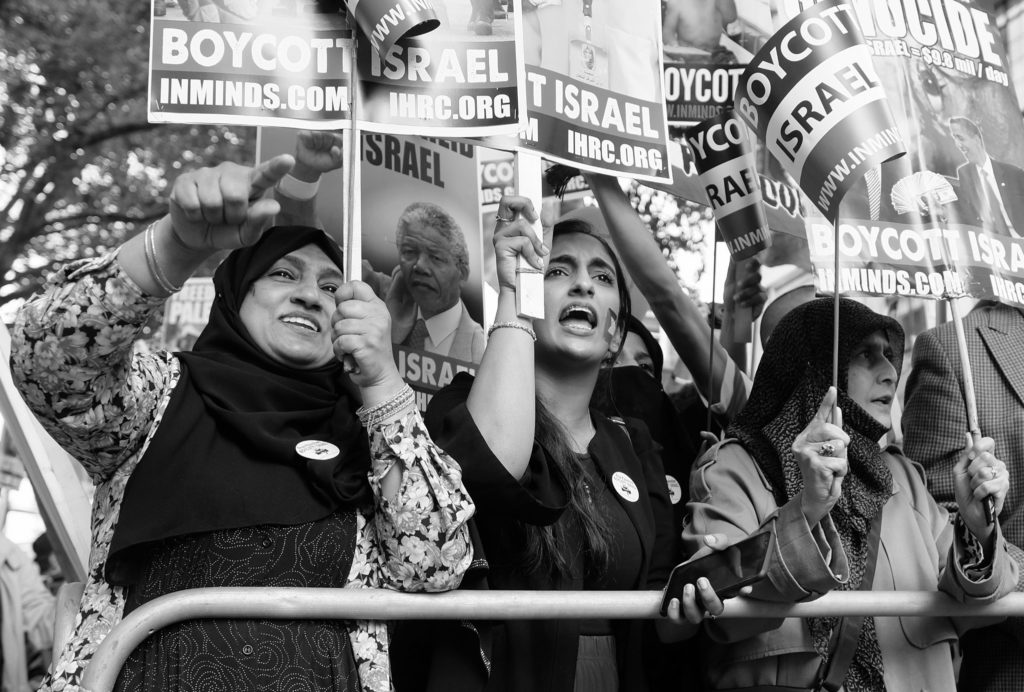
These stated goals do not explicitly call for an end to the State of Israel. They can be read as demanding greater equality for Arab-Palestinians living in Israel, a “right to return” for the descendants of Arab refugees who fled or were expelled from Israel during the 1948 Arab-Israeli War (which is a very thorny issue, read more in proposed solutions), and the end of Israeli control over the territories that Israel captured in the 1967 Six-Day War: the West Bank, Eastern Jerusalem, the Gaza Strip (which Israel no longer controls, though it does control most of its borders), and the Golan Heights.
Many leaders and supporters of the BDS movement do explicitly oppose the existence of a Jewish state. For example, Omar Barghouti, a founder of the BDS movement, has said that he opposes “a Jewish state in any part of Palestine.” The pro-BDS organization Jewish Voice for Peace has declared that it “unequivocally oppose[s] Zionism.” In addition, critics of BDS insist that by not specifying a two-state solution, and by seeking to end the “occupation and colonization” of all Arab lands, the BDS statement is essentially calling for the demise of the Jewish state.
Furthermore, Israelis also fear what recognizing a “right of Palestinian refugees to return to their homes and properties” would mean, since these refugees’ descendants now number in the millions. If all these Palestinians moved to Israel, the country’s Jews would be outnumbered.
How long has the BDS movement been going on?
Anti-Israel boycotts are nothing new. Ever since the Jewish state was born, Arab countries have boycotted Israel and pressured international companies to comply. But this boycott weakened as some Arab countries made peace with Israel, starting with Egypt in 1979. After the Second Intifada erupted in 2000, pro-Palestinian activists began pushing divestment efforts on American college campuses and in liberal churches.
But the global BDS movement traces its official start to 2005, when a collection of Palestinian groups issued a statement titled “Palestinian Civil Society Calls for Boycott, Divestment and Sanctions against Israel Until it Complies with International Law and Universal Principles of Human Rights.” The statement begins with a condemnation of the security barrier that Israel built in the West Bank (calling it “the colonial Wall”), accuses Israel of having been “built mainly on land ethnically cleansed of its Palestinian owners,” argues that Israel has consistently violated international law, and insists that “all forms of international intervention and peace-making” have failed to get Israel to change its ways.
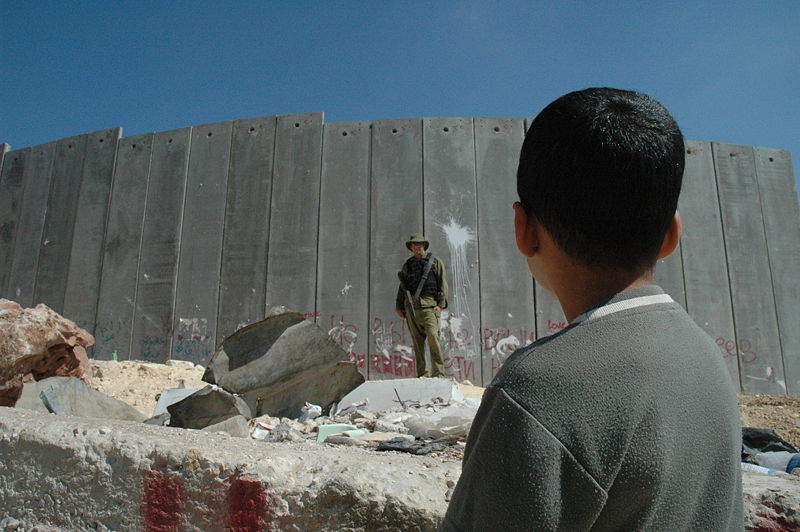
So, as it states, “We, representatives of Palestinian civil society, call upon international civil society organizations and people of conscience all over the world to impose broad boycotts and implement divestment initiatives against Israel similar to those applied to South Africa in the apartheid era. We appeal to you to pressure your respective states to impose embargoes and sanctions against Israel. We also invite conscientious Israelis to support this Call, for the sake of justice and genuine peace.”
Okay, what does this have to do with South Africa?
BDS activists often reference South Africa in their efforts against Israel, because a decades-long international campaign for boycotts and sanctions helped to finally bring down the white-run apartheid regime that disenfranchised and oppressed the country’s black majority in 1994.

In addition to taking inspiration from the anti-apartheid movement, BDS activists find referencing South Africa useful because they want to draw a parallel between Israeli policies toward the Palestinians and apartheid’s racism. Some prominent South African anti-apartheid activists, such as Nobel laureate Archbishop Desmond Tutu, have lent their support to BDS and compared Israel’s treatment of the Palestinians to apartheid.
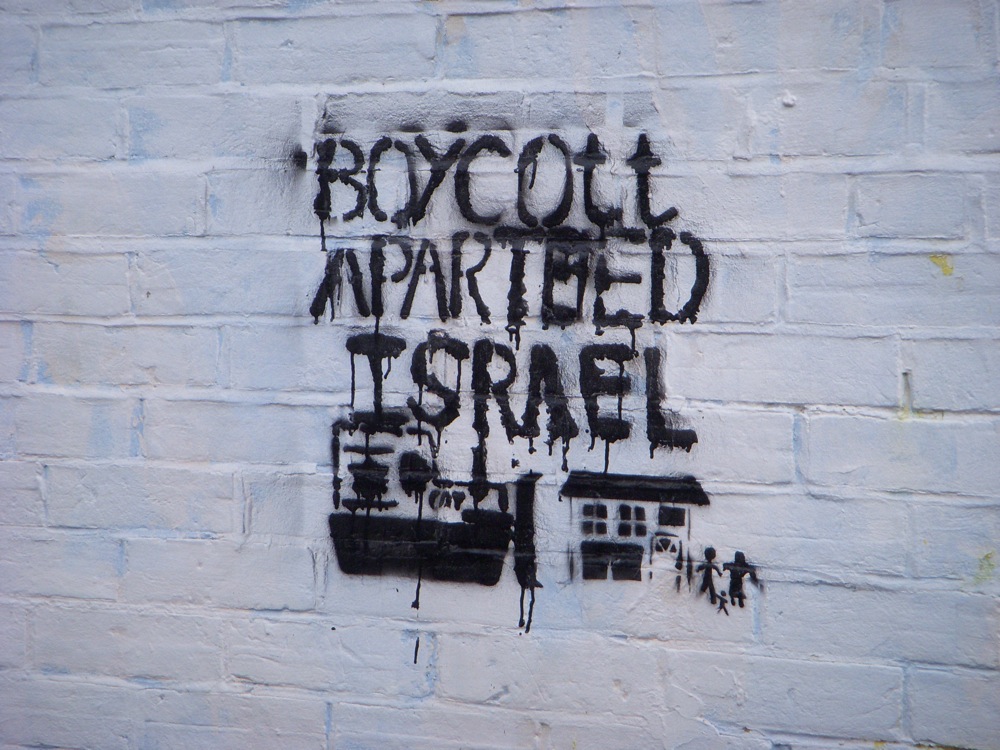
So is Israel an “apartheid state”?
Well that’s a complicated question…
South Africa’s apartheid laws disenfranchised non-white South Africans and enforced a regime of comprehensive racial segregation. There’s nothing comparable within Israel’s borders. While Israel’s Arab citizens do suffer from real problems with discrimination and inequality, they have the right to vote, they serve in the Israeli parliament, they work and study in universities alongside Jewish Israelis, and they have achieved great success in fields like medicine, where they are well-represented among Israeli doctors and pharmacists.
The situation, though, is very different for Palestinians who live in the West Bank. While a majority of the West Bank’s Palestinians live in areas governed by the Palestinian Authority, a majority of the land in the West Bank is under Israeli military rule. Jewish settlers in the West Bank benefit from Israeli citizenship and can travel around more freely, sometimes on roads that were built just to serve them. By contrast, Palestinians can face long waits at Israeli army checkpoints to go from place to place.
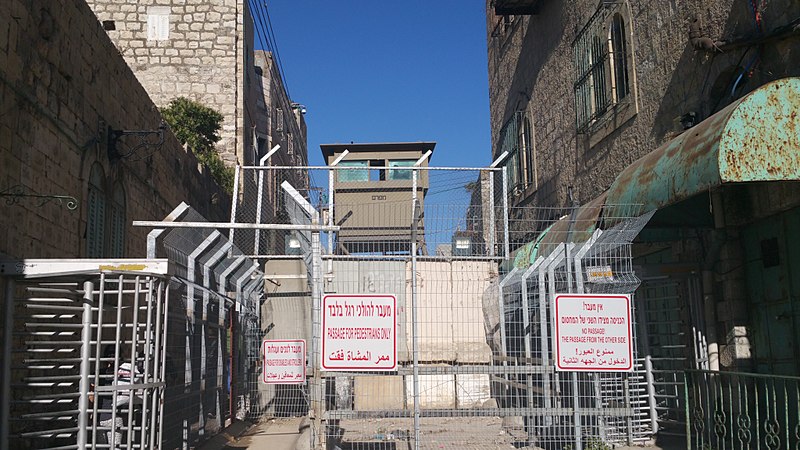
In areas of the West Bank under Israeli control, Palestinians live under military rule and Israel controls access to natural resources and whether or not Palestinians can build homes. Some see this situation — in which an Israeli military administration gives rights to Jewish settlers that West Bank Palestinians don’t have — as apartheid.
But Israel’s defenders counter that the situation in the West Bank is not about race, but rather about ensuring security and preventing terrorism, and that these problems would be addressed if there is peace.
Can you tell me about the “apartheid state” analogy in video form?
Sure can!
Has BDS been successful?
Well, how do we define “success”? Israel’s economy is thriving, and it is far from being isolated internationally. So BDS hasn’t had much of an effect on Israel’s bottom line, let alone brought any big political changes. But you can argue the BDS movement has had success in the hearts-and-minds department. BDS has become a big issue on certain college campuses. A few dozen student governments have passed divestment resolutions (though college administrators haven’t followed their students demands to divest).
The BDS movement has also won boycott pledges from a handful of academic associations and graduate student unions. Twitter-fueled campaigns have caused many pop stars — from Lorde toLana Del Rey — to cancel shows in Israel.
So BDS has racked up some serious publicity. The movement may not have achieved its economic goals, but BDS has gotten the attention of Israel and alarmed Jewish organizations, who have made fighting the movement a major focus.
Last question: Is BDS anti-Semitic?
The BDS movement insists that it is opposed to anti-Semitism. BDS supporters say it is a human rights movement targeting a government and its policies, not Jews. Indeed, there are a number of Jews, and even Israelis, who have gotten involved with the BDS movement.
But for many Jews and supporters of Israel, singling out the Jewish state for a boycott can feel similar to past anti-Semitic boycotts specifically targeting Jews.
As the Anti-Defamation League points out, “Many of the founding goals of the BDS movement, including denying the Jewish people the universal right of self-determination — along with many of the strategies employed in BDS campaigns are anti-Semitic. Many individuals involved in BDS campaigns are driven by opposition to Israel’s very existence as a Jewish state. Often time, BDS campaigns give rise to tensions in communities — particularly college campuses — that can result in harassment or intimidation of Jews and Israel supporters, including overt anti-Semitic expression and acts. This dynamic can create an environment in which anti-Semitism can be express [sic] more freely.”
Basically: Go read our article on anti-Zionism and anti-Semitism.
Wait, can I watch a video explaining BDS?
You sure can!
Palestinian Authority
The Palestinian Authority is a Palestinian governing body established for the purposes of Palestinian self-government by the 1994 Oslo Accords.
1948 Arab-Israeli War
The 1948 war was a conflict fought between the newly established State of Israel and a coalition of Arab armies. Israel regards the conflict as its War of Independence while Palestinians refer to it as the Nakba, or “catastrophe.”
Second Intifada
The Second Intifada was a period of Israeli-Palestinian violence sparked by the visit of Ariel Sharon to the Temple Mount in Jerusalem in 2000.
Six-Day War
The Six-Day War was a war between Israel and multiple Arab states in 1967 that resulted in Israel vastly expanding the territory under its control, including the disputed territories of the West Bank and Gaza Strip.
Golan Heights
The Golan Heights is a plateau captured by Israel from Syria in the 1967 war. It was effectively annexed by Israel in 1981.
West Bank
The West Bank is the territory captured from Jordan by Israel in 1967. It remains the core piece of disputed territory between Israelis and Palestinians.
Gaza
The Gaza Strip is a coastal territory bordered by Israel, Egypt and the Mediterranean Sea. The strip was occupied by Israel following the 1967 war and returned to Palestinian control in 2005.